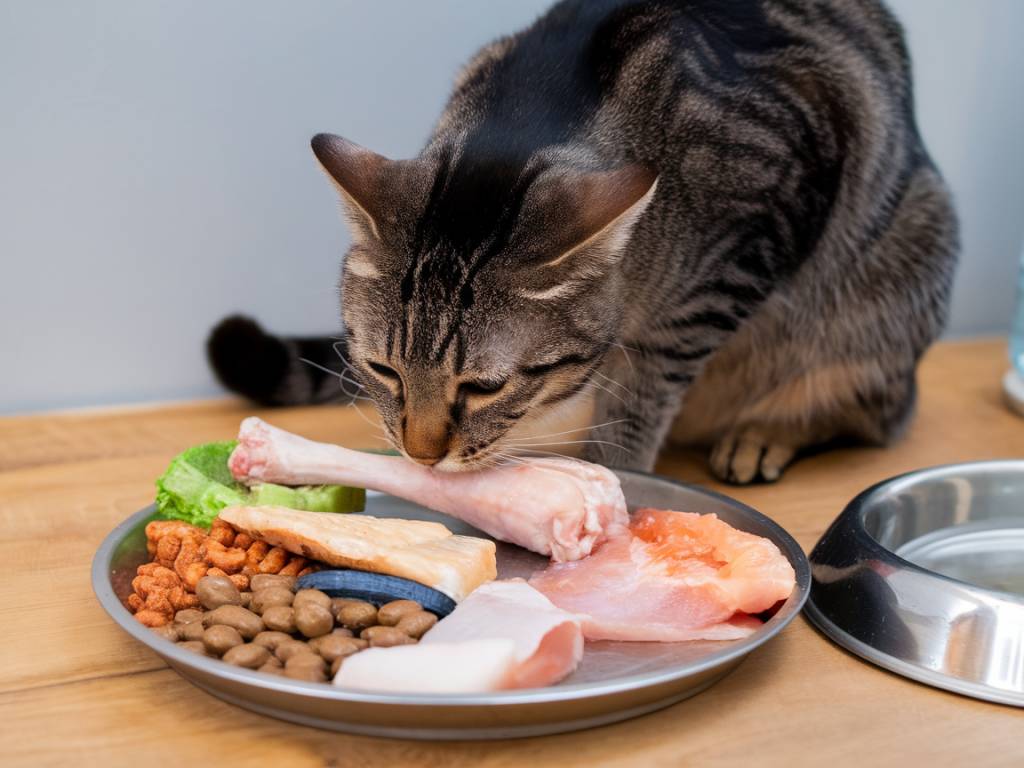Neutering is a common procedure aimed at preventing unwanted behaviors and health issues in cats. However, this process also brings about changes in their metabolism and energy requirements. As a responsible cat owner, adjusting their diet to cater to these changes is essential to maintain their overall well-being. Here’s how you can adapt your neutered cat’s diet to meet their specific nutritional needs.
Understanding Changes in Nutritional Needs
Neutering results in hormonal changes that can alter your cat’s metabolism. After the procedure, cats may become less active and more prone to weight gain. This is due to a reduction in metabolic rate and an increase in appetite. Therefore, it’s crucial to pay attention to specific dietary requirements to prevent obesity and other health issues.
Adjusting Caloric Intake
One of the first steps in adjusting your neutered cat’s diet is to manage their caloric intake. You may need to reduce the number of calories they consume daily to match their decreased activity level.
- Consult with your veterinarian to determine the ideal caloric intake for your cat based on its age, weight, and activity level.
- Opt for a diet that’s lower in calories but rich in nutrients. This ensures your cat gets the essential nutrients while keeping its weight in check.
- Monitor your cat’s weight regularly and adjust their food intake as needed to prevent excessive weight gain.
Choosing the Right Protein Sources
Ensure your neutered cat receives high-quality proteins to maintain lean muscle mass. Although the overall calorie count might decrease, the quality of ingredients should not.
- Look for cat food that lists meat as the first ingredient. Chicken, turkey, and fish are excellent choices.
- Avoid foods with excessive fillers like corn or soy, as these can provide empty calories.
- Consider a diet that includes animal-based proteins as well as taurine, an essential amino acid crucial for heart and eye health in cats.
Incorporating Fiber for Satiety
Fiber plays a significant role in keeping your neutered cat full and satisfied without adding extra calories. It helps in controlling their appetite and can prevent overeating.
- Opt for cat foods that include fiber-rich ingredients like beet pulp or psyllium husk.
- Introduce fibrous vegetables like pumpkin in moderation, either cooked or pureed, as a healthy supplement to their diet.
- Monitor how your cat responds to fiber intake to avoid digestive upset.
Balanced Fat Content
While fats are an important part of a cat’s diet, providing energy and aiding in nutrient absorption, excessive fat can lead to weight gain in neutered cats. Balancing fat intake is crucial.
- Choose cat foods with moderate fat content, enriched with omega-3 and omega-6 fatty acids beneficial for skin and coat health.
- Avoid giving your cat high-fat treats and table scraps that can contribute to an unbalanced diet.
Hydration and Water Intake
Ensuring proper hydration can help maintain urinary health in neutered cats, which is a common issue. Always encourage water consumption.
- Provide clean, fresh water at all times. Consider a cat water fountain to stimulate interest if your cat is reluctant to drink water.
- Incorporate wet food into your cat’s diet to increase water intake. Wet food can be a valuable source of hydration.
- Observe your cat’s water drinking behavior and consult the vet if you notice any changes.
Regular Feeding Routine
Establishing a regular feeding routine can prevent overeating or excessive begging, which is crucial for maintaining a healthy weight in your neutered cat.
- Feed your cat at the same times each day to create a sense of consistency and schedule.
- Avoid free-feeding, which can lead to dangerously higher calorie intake.
- Incorporate interactive feeders or puzzle toys to make mealtimes engaging and to slow down the eating process.
Monitoring and Adjusting Diet
Every neutered cat is unique, and their dietary needs can vary. Regular monitoring and adjustments are necessary for optimal health.
- Keep an eye on your cat’s body condition score (BCS) and overall health.
- Schedule routine veterinary check-ups to ensure your cat stays on the right nutritional track.
- Be receptive to the changes in your cat’s health and adjust their diet as recommended by your veterinarian.
Adapting your neutered cat’s diet is essential in catering to their changing metabolic needs. Providing them with a balanced, nutritious diet alongside regular monitoring can go a long way in ensuring they remain healthy and happy. Remember, a well-fed cat is a happier and more active companion.
By following these guidelines, you can help your neutered cat maintain a healthy weight while ensuring they thrive in all stages of life.
Written by Lisa Tissed.
« `

